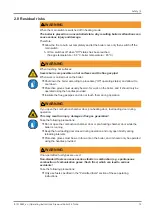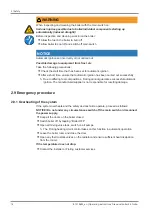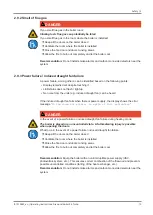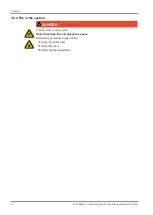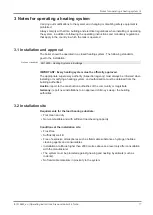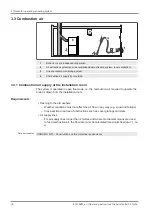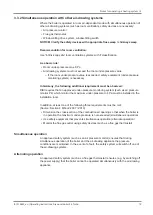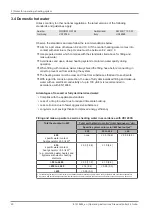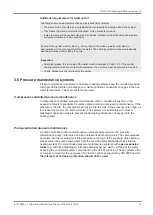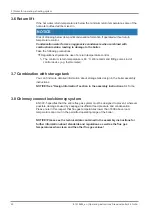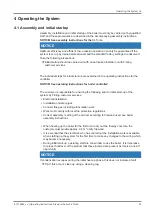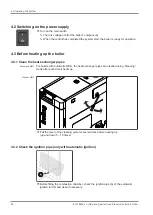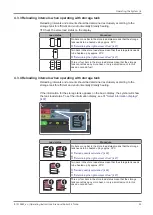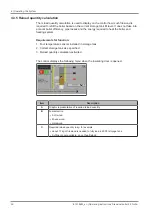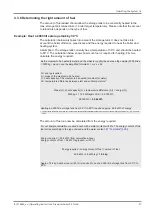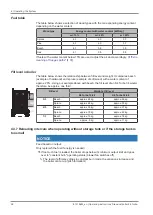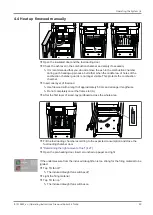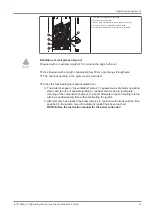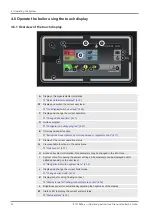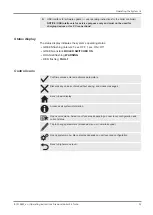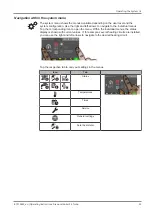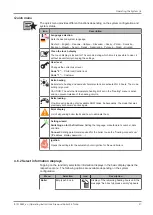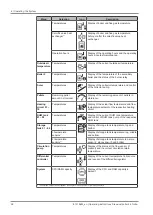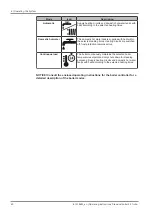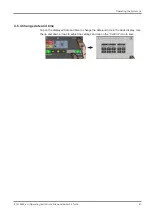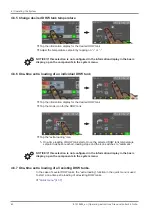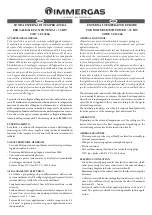
Operating the System | 4
B1510622_en | Operating instructions Firewood boiler S4 Turbo
27
4.3.6 Determining the right amount of fuel
The amount of fuel added should allow the storage tank to be constantly heated to the
max. storage tank temperature (= boiler target temperature). Please note that the amount
to reload also depends on the type of fuel.
Example: Heat a 2000 litre storage tank by 30°C
The calculation below only takes into account the storage tank. It does not take into
account the boiler efficiency, pipe losses and the energy required to heat the boiler and
heating system.
Assumption: The storage tank currently has a temperature of 50°C and should be heated
to 80°C. The calculation below shows how much fuel is required for heating. First we
calculate the energy required:
As the medium to be heated is water and the mass is roughly the same as the volume (2000 litres
= 2000 kg), we can use the simplified formula Q = m x c x Δt.
Q = energy required
m = mass of the medium to be heated
c = heat capacity of the medium to be heated (constant for water)
Δt = temperature difference between start and end temperature
1)
Mass (m) x heat capacity (c) x temperature difference (Δt) = energy (Q)
2000 kg x 1.163 Wh/kgK x 30 K = 69 780 Wh
69 780 Wh =
69.8 kWh
Heating a 2,000 litre storage tank from 50°C to 80°C requires approx. 69.8 kWh of energy.
1. Temperature difference in Kelvins (K). As these are not absolute temperatures the value can be entered in degrees Celsius (°C). (30°C equals
30 K)
The amount of fuel can now be calculated from the energy required:
For our sample calculation we used beech with a water content w=20%. The energy content of the
fuel varies according to the type of wood and the water content. (
)
Energy required = 69.8 kWh (from calculation above)
Energy content of fuel = 3.8 kWh/kg (beech, w=20%)
Energy required / energy content of fuel = amount of fuel
69.8 kWh / 3.8 kWh/kg =
18.4 kg
Approx. 18.4 kg beech wood (w=20%) is required to heat a 2,000 litre storage tank from 50°C to
80°C.

